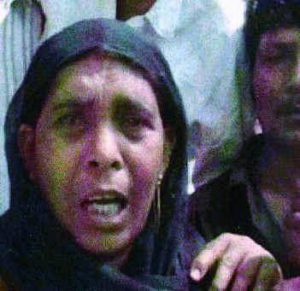Films for freedom
The Hindu | by Anand Patwardhan
Covert censorship of “uncomfortable” films sparks a protest in Mumbai and leads to the birth of a parallel festival of documentary films.

THE right to freedom of expression is one of the best yardsticks to measure democracy with. It is enshrined as a fundamental right in Article 19 (a) of the Constitution. But the time has clearly come to remind both government and people that such a right not only exists but is essential to put into practice if India is to continue its democratic claims. In recent years, the state has not only imposed covert and overt censorship, but has also chosen to look the other way when hooligans burn books, destroy paintings, attack artists, tear down cinemas, rip apart ancient manuscripts and make a mockery of all constitutional safeguards.
With majority fundamentalism rising in the wake of a government that uses it to retain power, it is no accident that the official machinery of the state is ranged against the advocates of secularism, egalitarianism and social and gender justice. With the same state surrendering national sovereignty to multinational corporations and the “free market” resistance against militarism, rapacious and unsustainable “development” and the ruin of the country’s natural and human resources is sought to be suppressed with equal vehemence. It is in this larger context that the current struggle of Indian documentary filmmakers must be seen.
In February 1990, the Ministry of Information and Broadcasting gave the Films Division of India a fresh lease of life by asking it to run the first Bombay International Film Festival (BIFF). The success of this festival in showcasing documentaries of high quality led it to be sanctioned as a biannual event. It is important to remember the political ambience of the time. The Bharatiya Janata Party had only two seats in Parliament. The Babri Masjid was intact. The communal bloodbath of 1992-93 had not yet occurred. Those who proclaimed that India was a Hindu nation were not yet taken seriously.